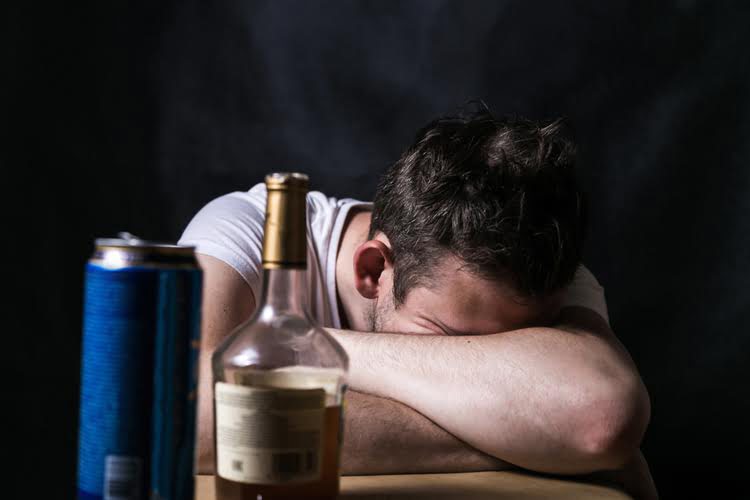Early Sobriety: What to Expect in the First Few Months of Recovery
In addition, having a support network once treatment is over can ease the transition from rehab back to daily living. This support fosters the motivation and self-confidence needed for sustained sobriety. Reputable, research-based treatment programs select therapies and interventions to match your personal needs. For example, a Veteran with post-traumatic stress disorder (PTSD) who misuses cocaine, doesn’t have the same needs as a stay-at-home mom struggling with alcohol use.
Supportive Networks and Aftercare Programs
- Some of the immediate changes you will need to make will be obvious—like not hanging around the people that you used with or obtained drugs from.
- By the time people reach the contemplation stage, they’ve begun to recognize they have a drinking problem and may want to get help, but they’re often on the fence about it.
- At Discover Recovery, we work with a wide variety of health insurance providers so those in need can get access to the treatment they need.
- Patience, perseverance, and the willingness to seek help when needed are key to long-term success.
- After completing the rehabilitation phase, individuals in alcohol recovery enter the crucial stage of maintenance and relapse prevention.
- The reality is that many situations can make it hard to reintegrate into normal life without some hiccups and potential for relapse.
- Yet, alcohol is highly addictive and can cause severe health problems.
“Sleep is a problem, but if I sleep at all, it is a good night. I think that I have always had the sleep disorder.” “I realize this is no easy task. I am in my 30s and just now have decided to quit. I am not sleeping right. I snap at everyone.” “Most symptoms are gone except constipation and occasional shakes. Been sleeping really good.” “Today, I went to the grocery store, and I cannot believe how clear everything is getting. It’s amazing how foggy life was.” “Physically, I feel fine now, but I still crave alcohol like crazy. That’s going to be the worst part.”
Celebrating Milestones: Acknowledging Progress on the Road to Sobriety

They may be in denial about their addiction or feel that their substance use is not problematic. At this stage, it is crucial for friends and family to provide information and support to help the individual move towards the next stage, which is contemplation. The journey to overcome addiction is filled with resilience, persistence, and hope. Recognizing the need for change, detoxifying, and moving toward sobriety show how complex this journey is23. Each step, from realizing the problem to fighting relapses, is key for lasting recovery24.
What to expect when you quit drinking.
- Join our supportive sober community where each day becomes a step towards personal growth and lasting positive change.
- Gill is the owner of the Sober Powered Media Podcast Network, which is the first network of top sober podcasts.
- Over time, however, the body builds a tolerance to alcohol, and a person may have to drink more and more to get the same feeling.
- By identifying and addressing these underlying issues, individuals can develop healthier coping mechanisms and reduce the likelihood of relapse.
During alcohol detox, healthcare professionals may prescribe various medications to manage withdrawal symptoms and prevent complications. Benzodiazepines, such as diazepam (Valium) or lorazepam (Ativan), are commonly used to prevent seizures and reduce anxiety. These medications work by enhancing the effects of GABA, a neurotransmitter that helps calm the central nervous system. Benzodiazepines are typically administered on a tapering schedule to gradually wean the individual off the medication and minimize https://english-lessons-online.ru/node/655 the risk of rebound symptoms. If you meet at least two of the criteria for an alcohol use disorder, it may be time to examine your relationship with alcohol.
Stages of prohibition of Alcohol in Quran
Healthcare professionals closely monitor vital signs, such as blood pressure, heart rate, and temperature, to detect and manage any potential complications. In severe cases, medications like benzodiazepines may be administered to help taper off alcohol safely and minimize the risk of seizures or delirium tremens. Understanding your personal triggers for alcohol use is essential for maintaining sobriety. Common triggers may include stress, social situations, or certain emotions like anger or sadness. Work with your therapist or support group to identify your specific triggers and develop healthy coping strategies to deal with them. The alcohol withdrawal timeline varies from person to http://themoscowlife.ru/news/2009/07/25/1.html person, depending on factors such as the severity of alcohol abuse and individual health conditions.


Day six of no alcohol consumption usually brings some relief for the most severe withdrawal symptoms, but some nagging symptoms can persist. It’s a chance to understand triggers, improve coping skills, and strengthen the dedication to sobriety. The support of friends, family, or professionals can motivate and assist http://altemamarket.ru/index/page486/ in overcoming recovery challenges. It depends on many things like how severe the addiction is, what substance was used, and the support available. It includes big wins and possible steps back, like relapse in recovery.

Attend support group meetings regularly, as they provide a safe space to share your experiences, learn from others, and receive encouragement and accountability. Consider finding a sponsor or mentor who has successfully navigated the recovery process and can offer guidance and support. “Last week, I was on holiday. Several times, I thought, ‘Well, I will have a drink tonight,” and then I remembered the pain, and it kept me straight.” “I am feeling better than I have in a while, a long while. I still have a few side effects like sleeplessness, anxiety, irritability, and I crave sweets all the time.”
